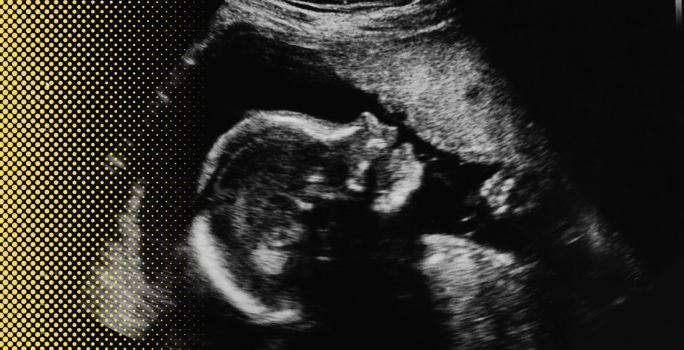Download a PDF of the Conversation Guide about Abortion.
Introduction
Abortion is a hot topic today and can often entice some emotionally charged discussions. It can become very difficult to hold on to what we believe when confronted with different views on the issue. In all the hype of pro-life and pro-choice campaigns, what does God’s Word have to say about the sanctity of life? How does a Christian respond? What words of hope can we give to those who are despairing over their past choice to get or support an abortion?
Scripture Connect (ESV)
Exodus 20:13 – “You shall not murder.”
Every human life, whether born or unborn, is precious to God. We are not to end any human life, no matter how uncomfortable or inconvenient following this 5th commandment might be for us.
Psalm 139:14-16 – “For you formed my inward parts; you knitted me together in my mother’s womb. I praise you for I am fearfully and wonderfully made. Wonderful are your works; my soul knows it very well. My frame was not hidden from you, when I was being made in secret, intricately woven in the depths of the earth. Your eyes saw my unformed substance; in your book were written, every one of them, the days that were formed for me, when as yet there was none of them.”
Here, King David marvels at God’s work of creation within the womb. God is intimately involved in the process of gestation, guiding it with His own hands, weaving us together. Even in the womb, when we were just a fertilized egg, just an embryo and later a fetus – an “unformed substance” – God saw us and knew us. God had already planned and already knew every day of our lives when we were still in the womb.
Proverbs 31:8-9 – “Open your mouth for the mute, for the rights of all who are destitute. Open your mouth, judge righteously, defend the rights of the poor and needy.”
The unborn have no voice, are unable to speak for themselves. The unborn are poor and needy, so dependent on their mothers that they die if they are taken from the womb too prematurely and not supported afterward by advanced medical care. Christ came to save the poor and needy of the world, and we are called to defend them and care for them as Christ did.[i]
Luke 1:41-44 – “And when Elizabeth heard the greeting of Mary, the baby leaped in her womb. And Elizabeth was filled with the Holy Spirit, and she exclaimed with a loud cry, ‘Blessed are you among women, and blessed is the fruit of your womb! And why is this granted to me that the mother of my Lord should come to me? For behold, when the sound of your greeting came to my ears, the baby in my womb leaped for joy.’”
Elizabeth’s baby, who would later be known as John the Baptist, leaps inside of her womb as Mary approaches. The unborn John recognizes the approach of his Savior, who had only just been conceived by the Holy Spirit. Life forms and grows within both of these women, and isn’t it amazing that Elizabeth’s unborn baby recognized his Messiah from the womb?
Doctrinal Quotation
Small Catechism on the 5th Commandment:
“We are to fear and love God, so that we neither endanger nor harm the lives of our neighbors, but instead help and support them in all of life’s needs.” [ii]
Large Catechism on the 5th Commandment:
“God wants to have everyone defended, delivered, and protected from the wickedness and violence of others, and he has placed this commandment as a wall, fortress, and refuge around our neighbors, so that no one may do them bodily harm or injury.” [iii]
“This commandment is violated not only when we do evil, but also when we have the opportunity to do good to our neighbors and to prevent, protect and save them from suffering bodily harm or injury, but fail to do so.” [iv]
“Therefore, God rightly calls all persons murderers who do not offer counsel or assistance to those in need and peril of body and life.” [v]
“Therefore it is God’s real intention that we should allow no one to suffer harm but show every kindness and love.” [vi]
Quotes by Luther on God as Creator of Life:
“Why do you not daily learn the article of divine creation by looking at your children and offspring, who stand before you? They are of far greater worth than all the fruits of the trees. Here you may behold the providence of God, who created them out of nothing. In half a year He gave them body and life and all their members and also intends to support them.” [vii]
“There is no denying the fact that even natural life comes from God, which unbelievers, too, have from Him, as St. Paul says (Acts 17:28): ‘In Him we live and move and have our being.’” [viii]
Commission on Theology and Church Relations (CTCR) of the LCMS:
“[Christians] confess that Christ has died for the weak and the ungodly (Rom. 5:6) and that God has chosen what is weak in this world (1 Cor. 1:27). Such knowledge gives content to Christ’s command that we are to love as He has loved us (John 15:12). We too must value the poor and the weak, those too powerless to speak for themselves, those easily disposed of because they seem to contribute little.” [ix]
“Human embryos, beginning with conception, are set on a course of development that leads continuously to an unfolding of a unique human life.” [x]
Application:
God regards every human life, no matter how young, as precious, and He calls us to protect the lives of the very least of these around us. The unborn are vulnerable and unable to defend themselves, so we should do all in our power to protect their lives.
So, what is a Christian to do about abortion?
- We need to recognize that just because something is legal does not make it right in God’s eyes. Our country’s laws change, but God’s law stays the same. All abortion, whether in the third trimester or early in the first, is wrong, no matter whether our country recognizes that or not. We should pray for our leaders, as the Bible instructs us to do, and for the decisions they make. Those with the vocation and gifts to do so can be God’s servant in the political realm, and the rest of us can support those servants.
- We should use biology to defend the fact that each unborn child is a new human being, with its own DNA and genes that are separate from its mother’s. It is not simply another part of its mother’s body, but is a completely separate being who is distinctively human. Therefore, a mother does not have the right to get an abortion on the assumption that she can do whatever she wants with her own body. The child may be inside her body, but he or she is not her body.
- We should refrain from getting abortions ourselves, no matter how inconvenient bearing a child may be for us. Even children conceived out of rape or incest, or children who will be born with developmental disabilities or health problems are precious to God. If a man rapes a woman and she becomes pregnant, we need to acknowledge that what was done to her is awful and wrong, but also that the child should not have to pay for the sins of its father. A wrong does not right a wrong. The lives of children, whether conceived legitimately or in sin, are valuable to God and we should never take God’s place in deciding when their lives will end. Whether because they will not have a standard of living that is “ideal” or because they are unwanted by their parents, that child is still a human being. Intent of the parents does not change biology. Our Synod makes exceptions on this point in the rare situation that the pregnancy endangers the life of the mother. Even in this, however, all options should be considered prayerfully before a decision is made. Some women still choose not to abort their babies and risk their own lives in so doing, but, to quote the CTCR document on abortion, “such an act of self-giving cannot be required.” [xi]
- We should provide better options for mothers in crisis. Pregnancy, especially unwanted pregnancy, can be scary, and many women may feel like they have no other option but to abort their babies. But, there are other options, including adoption, that are available if a woman feels that she cannot keep her child. Crisis pregnancy centers can be a tremendous help to women, some providing pre-natal support, counseling, parenting classes and needed baby supplies. If we know of a woman in a crisis pregnancy situation, we should do what we can to encourage her to keep the baby at least until term and offer support in any way we can.
- Lastly, and maybe most importantly, we must understand that this is a very sensitive topic especially in our culture today and any truth we utter should be spoken in love.[xii] We should speak the Law when it is needed in order to protect the lives of the unborn, but we should also not refrain the Gospel from those who are despairing over past decisions regarding abortion. Sometimes, it is not always clear whether the Law or the Gospel is needed in a specific situation, so we should always be eager to actively listen and assess the needs of those to whom we are speaking in order to apply Law and Gospel correctly.
Words of Hope for Those Who have had Abortions:
Thankfully, we serve a gracious God, who forgives us of our sins in thought, word and deed, in what we have done, and in what we have left undone. A mother who aborted her child can find grace and forgiveness through faith in Jesus Christ. In the same way, those who have not obeyed the 5th commandment by not protecting the lives of those around them, such as supporting an abortion, forcing a mother to have an abortion, performing one or failing to provide better options when possible, have forgiveness at the cross of Christ. Thank God that He loved us enough to send His Son to die for us, that those who believe can have forgiveness of all of their sins and eternal life forever with Him.
[i] Commission on Theology and Church Relations, Abortion in Perspective, (May 1984), 29.
[ii] SC: The Ten Commandments, 10
[iii] LC: The Ten Commandments, 185
[iv] LC: The Ten Commandments, 189
[v] LC: The Ten Commandments, 191
[vi] LC: The Ten Commandments, 193
[vii] Luther, Martin. What Luther Says: An Anthology. Comp. Ewald M. Plass. Vol. 1. (St. Louis: Concordia Pub. House, 1959), 138.
[viii] Luther, Martin. What Luther Says: An Anthology. Comp. Ewald M. Plass. Vol. 2. (St. Louis: Concordia Pub. House, 1959), 784.
[ix] Commission on Theology and Church Relations, Abortion in Perspective, (May 1984), 29.
[x] Commission on Theology and Church Relations, Christian Faith and Human Beginnings: Christian Care and Pre-Implantation Human Life, (September 2005), 36.
[xi] Commission on Theology and Church Relations, Abortion in Perspective, (May 1984), 35.
[xii] Ephesians 4:15 (ESV)






0 Comments